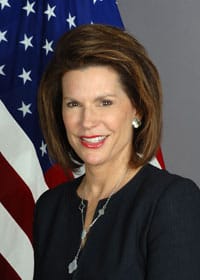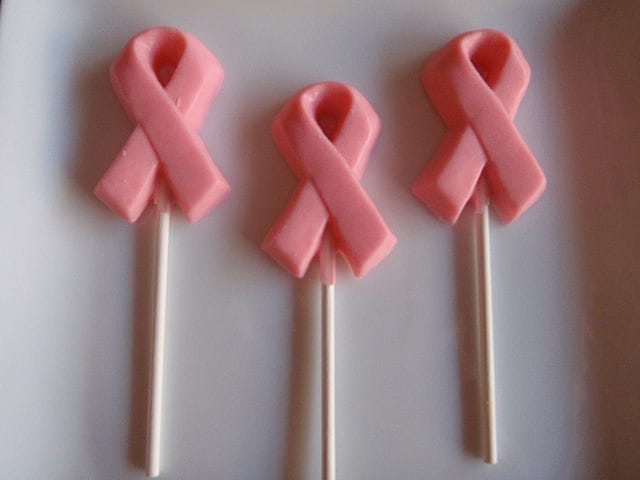When Nancy Brinker’s sister was battling breast cancer in the 1970s, she made Nancy promise that she would strive for the rest of her life to find a cure. Susan Komen was her sister’s name, and Nancy has ever since fought “for a cure.” Over the course of the last 30 years, her foundation, Susan G. Komen for the Cure, has made pink not just a color but an international symbol, a ribbon the pin of choice for statesmen, business leaders and stay-at-home moms, and races and walks fundraising phenomena.
Recently, Brinker spoke on Penn’s campus as part of the Wharton Leadership Lectures series. Here are some of the sounds bites that leave us ruminating for days after:
“We’re not just attacking the disease part.”
In response to an audience question about holistic treatments for cancer, Brinker delved into Susan G. Komen’s significant focus on—and millions invested in—prevention.

Nancy Brinker also served as U.S. Ambassador to Hungary from 2001-2003 and Chief of Protocol of the United States from 2007-2009.
“People really didn’t want to talk about this.”
When Brinker first launched the now famous nonprofit in 1982, the word “breast” was not spoken in polite circles. When her sister was ill, people in her town would cross the road when they saw her coming because they feared her condition was contagious.
“In the world of cancer, it’s stunning to me how people fight each other.”
Some other nonprofits in the cancer space appear to be territorial or for other short-sighted reasons fail to understand that “with scale comes progress,” said Brinker.
“You don’t do this work to hire a bunch of lawyers to protect your brand.”
Susan G. Komen for the Cure has a reputation in some circles for being protective of its brand. But Brinker downplayed it. Imitation is the ultimate form of flattery, with every disease and condition now having its own color and running/walking event.
“We are very close to losing a generation of brilliant young people.”
Brinker is not hopeful about the state of science funding in the United States. Tomorrow’s top innovators, entrepreneurs and scientists know they’ll get the biggest bucks in mobile apps, not cancer cures.
“Yet another school you couldn’t have gotten into.”
Brinker’s mother says this to her when she gets invited to speak at schools like Wharton. Brinker said she felt lucky to attend the University of Illinois, but since has received honorary degrees from Duke and Yale.

























